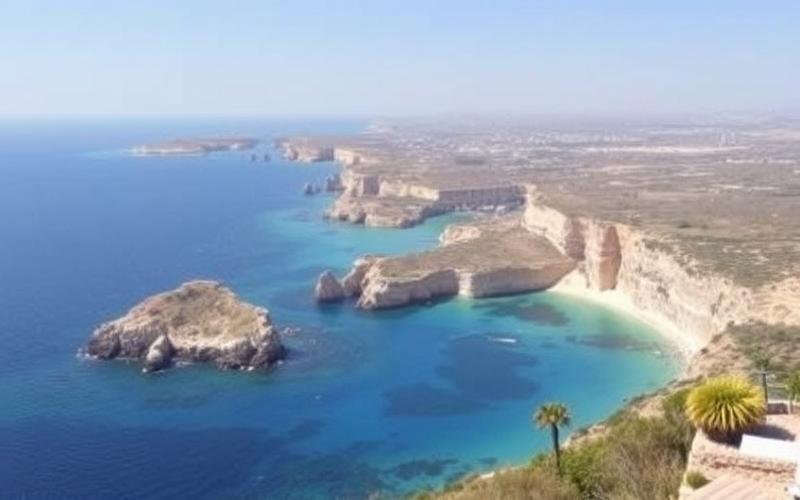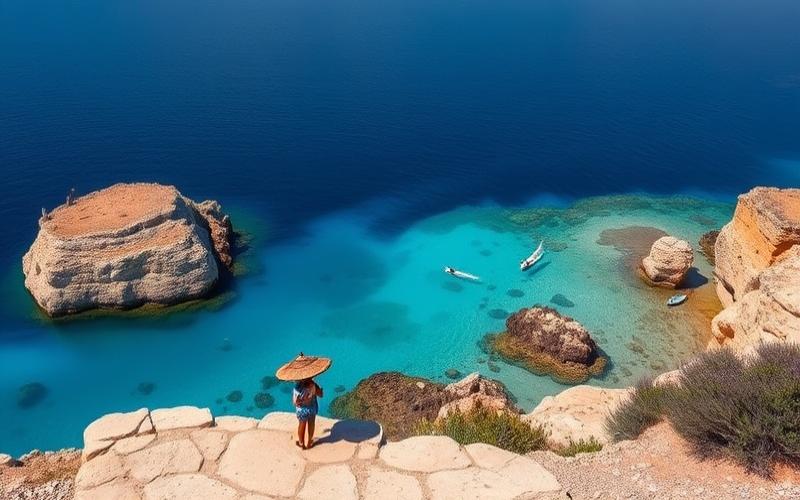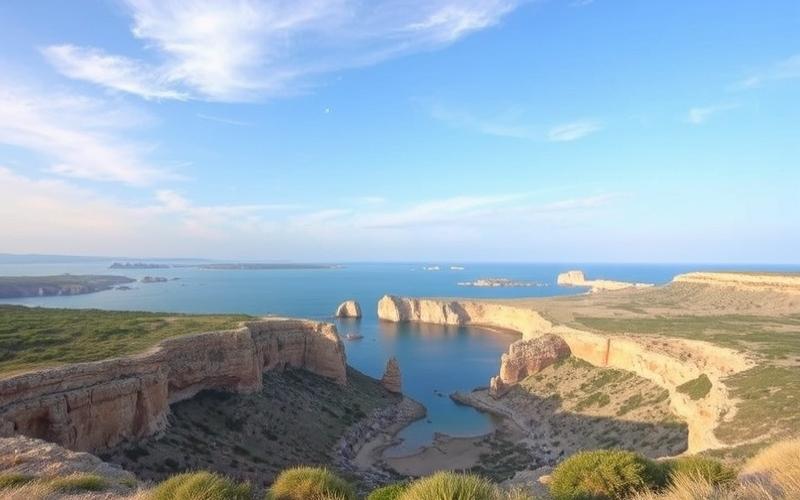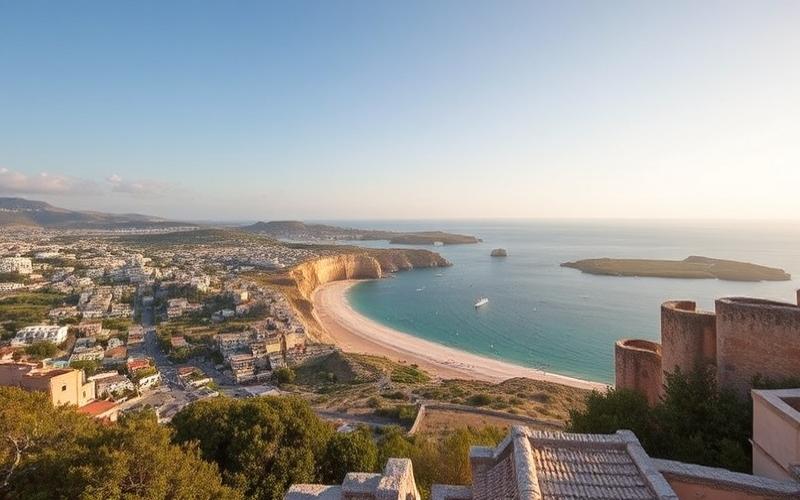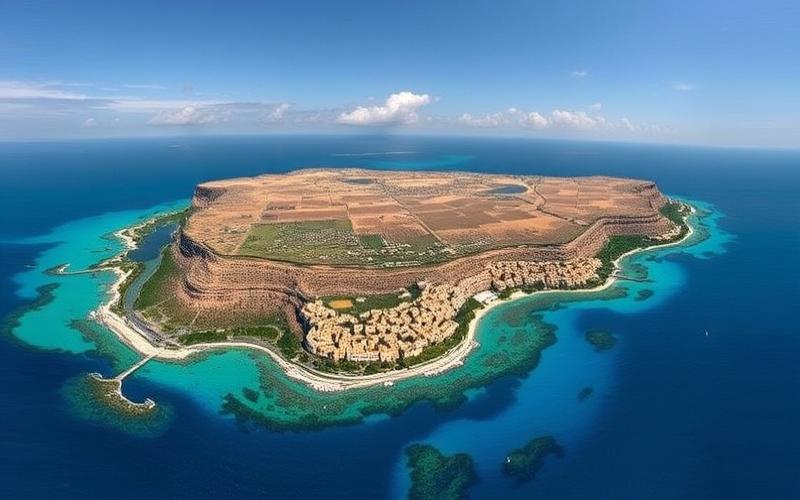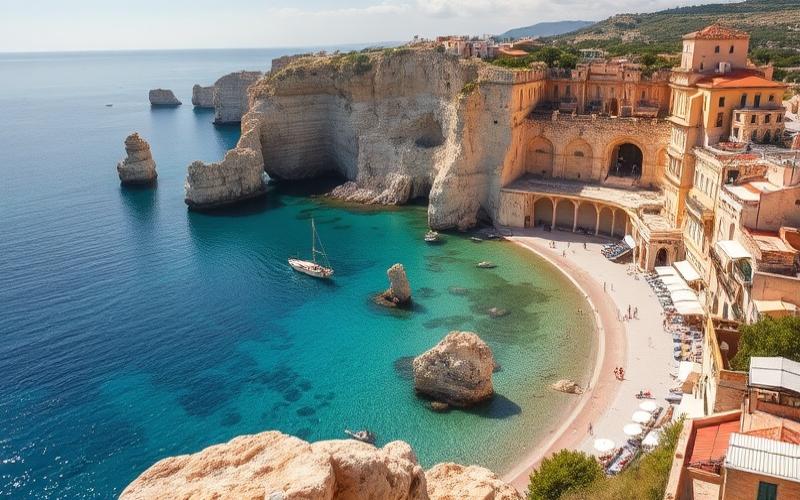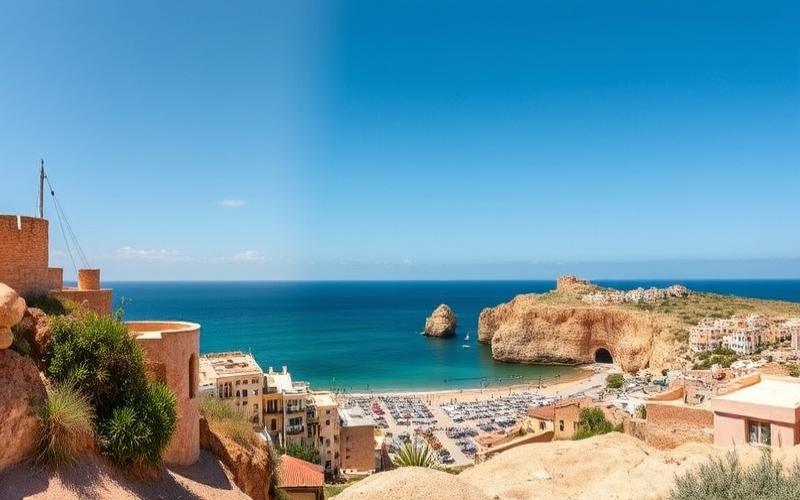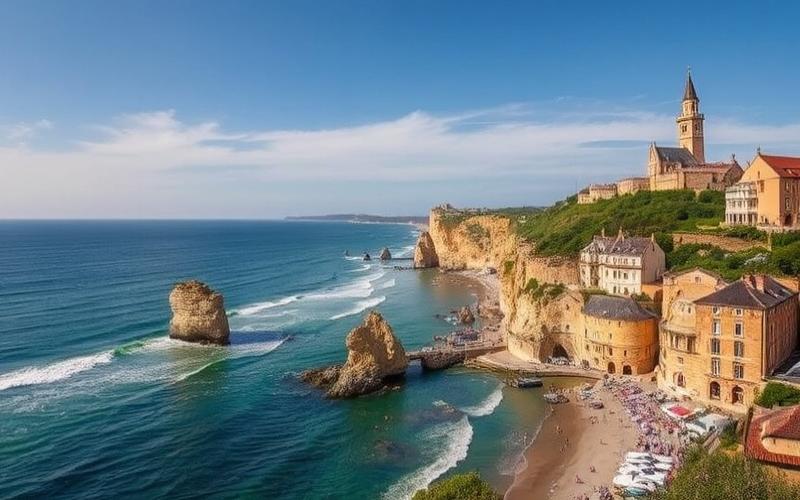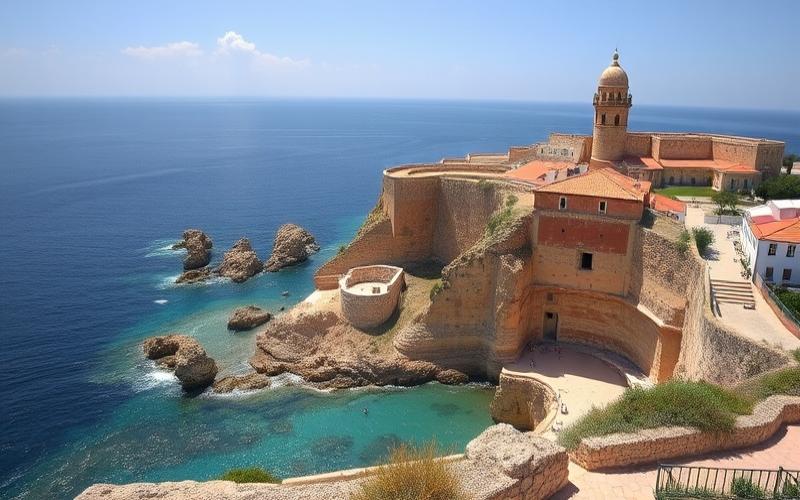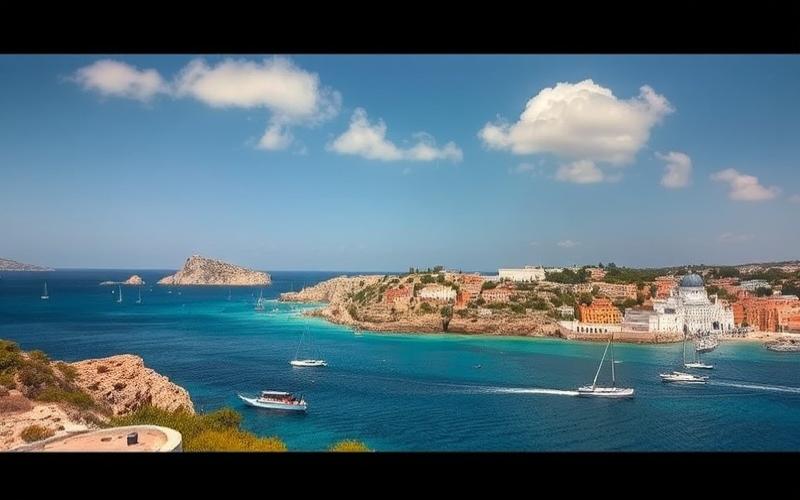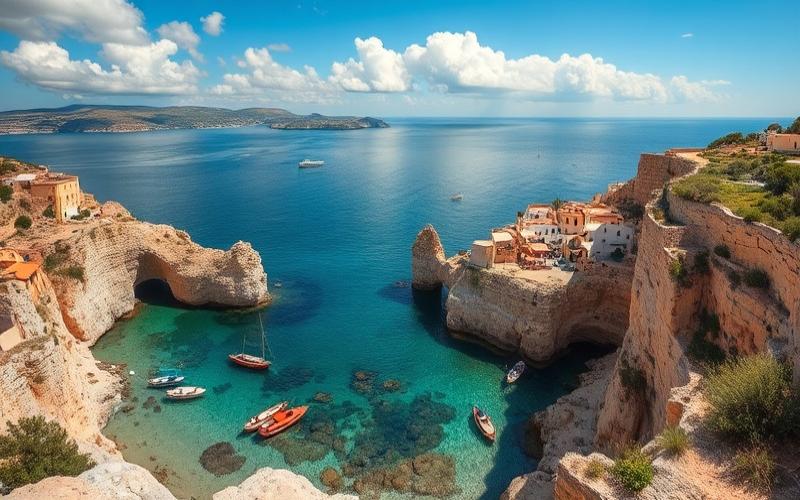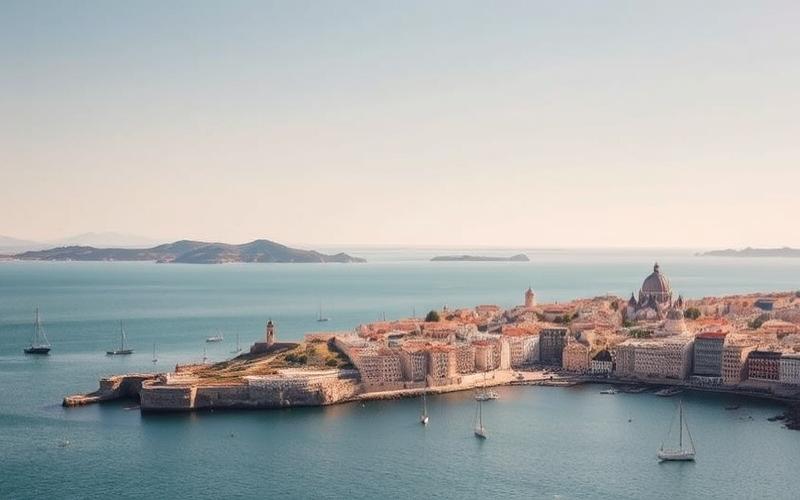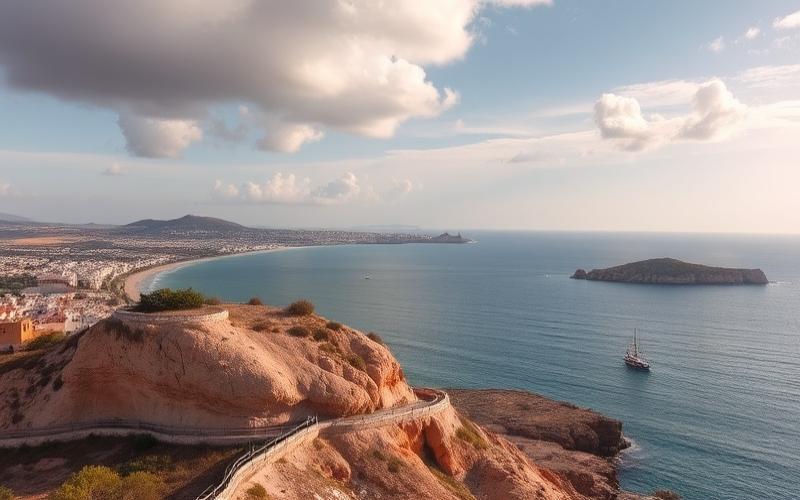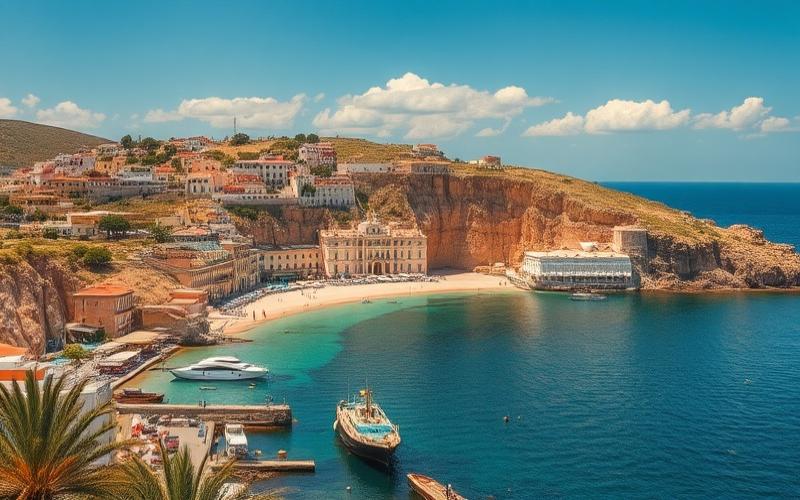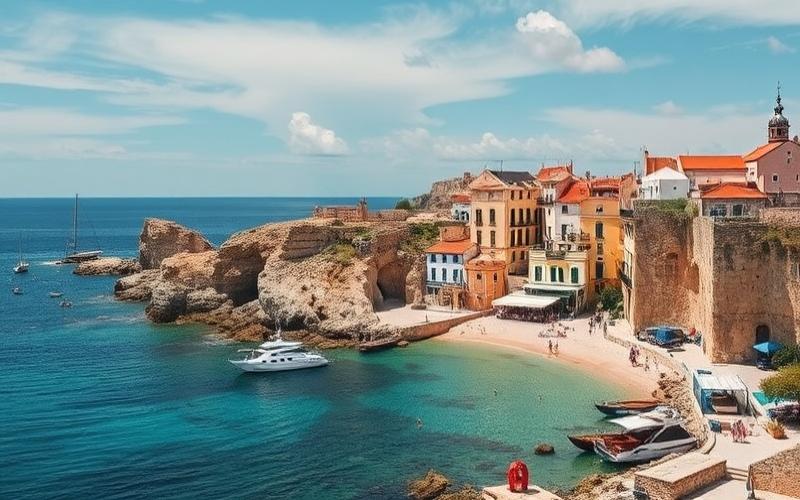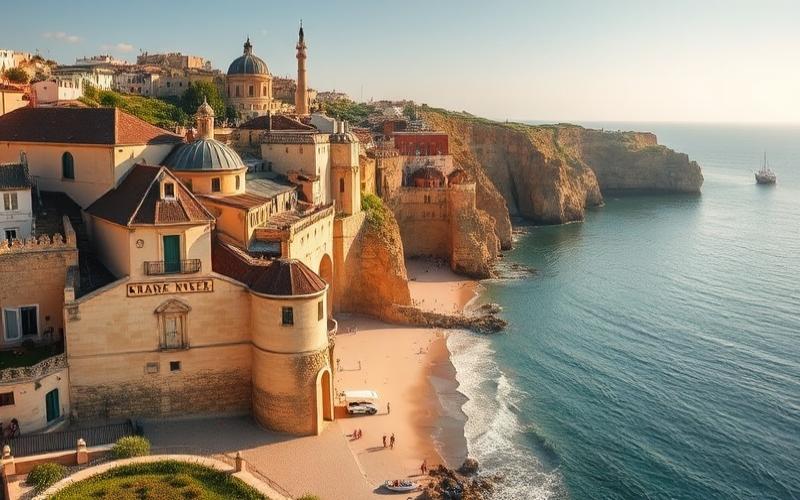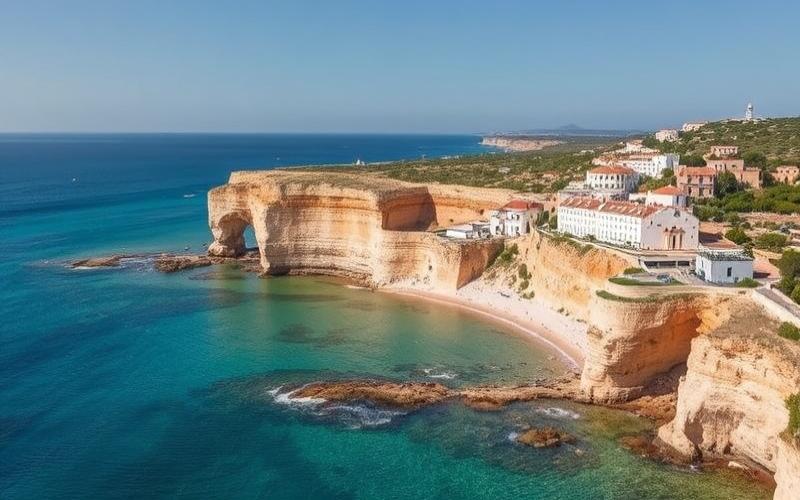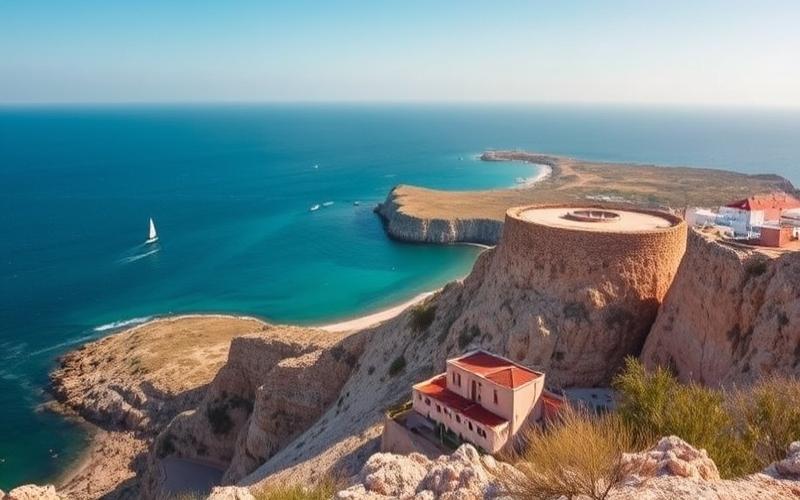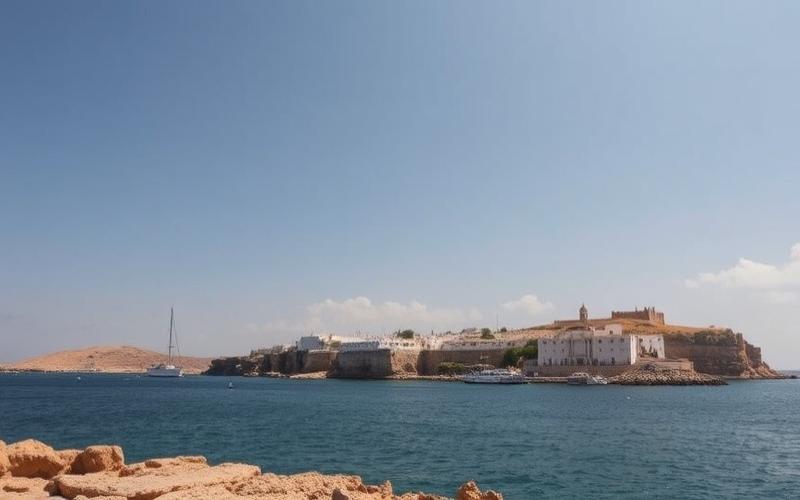
 Published on and written by Cyril Jarnias
Published on and written by Cyril Jarnias
Moving to Malta means immersing yourself in a fascinating world where Mediterranean and British influences blend. This island in the heart of the Mediterranean offers an exceptional living environment, but as with any expatriation, it’s crucial to understand the cultural nuances of the host country. Let’s explore together the main cultural differences to know before packing your bags for Malta, ensuring a smooth integration and harmonious interactions with the locals.
Maltese Etiquette: Decoding Social Codes
Maltese society, deeply rooted in Catholic traditions, presents social norms that may surprise newcomers. Understanding these codes is essential for navigating your new Maltese life with ease.
A Warm and Welcoming Society
The Maltese are known for their hospitality and friendliness. It’s not uncommon to see strangers striking up conversations on the street or in public transport. This open-mindedness greatly facilitates the integration of expatriates, but it’s important to remain respectful and not take advantage of this kindness.
The Importance of Family
Family holds a central place in Maltese society. Family ties are very strong, and generations often live together under the same roof. It’s common to see entire families gathering on Sundays to share a meal. As an expatriate, you might be surprised by the importance given to family relationships in conversations and daily decisions.
The Mediterranean Pace of Life
As in many Mediterranean countries, the pace of life in Malta is more relaxed than in France. Punctuality isn’t always strict, and patience is required in certain situations, especially in administrative settings. Adopt this “take your time” philosophy to integrate better and reduce your stress.
Good to Know:
The siesta, or “riposo,” is still practiced by some Maltese, especially during hot summer days. Don’t be surprised if some shops close their doors for a few hours in the early afternoon.
Traditions and Customs: Dive into the Maltese Soul
Maltese traditions and customs reflect a rich history and a unique cultural blend. Familiarizing yourself with them will help you better understand your host country and fully participate in local life.
Religious Festivals at the Heart of Maltese Life
The Catholic religion plays a predominant role in Maltese culture. Religious festivals, called “festas,” are major events in every town and village. These celebrations in honor of the local patron saint feature processions, fireworks, and festivities that last several days. Participating in these events is an excellent way to immerse yourself in the local culture and build connections with your neighbors.
Cuisine, a Reflection of the Island’s History
Maltese cuisine is a delicious blend of Italian, British, and North African influences. Traditional dishes like “pastizzi” (pastry filled with cheese or peas) or “fenek” (rabbit) are must-tries. Meals are often moments of sharing and conviviality. Don’t hesitate to accept dinner invitations; it’s a great way to integrate.
Bilingualism, an Asset to Cultivate
Malta has two official languages: Maltese and English. Although English is widely spoken, making the effort to learn a few words of Maltese will always be appreciated by the locals. It shows your interest in the country’s culture and will facilitate your daily interactions.
Good to Know:
Maltese is a unique language, a blend of Arabic, Italian, and English. Even if you don’t master it, knowing a few basic expressions like “Bonġu” (hello) or “Grazzi” (thank you) will always make a good impression.
Avoiding Faux Pas: Keys to Successful Integration
For a successful expatriation in Malta, it’s important to be aware of certain cultural particularities to avoid misunderstandings and awkward situations.
Respect Religious Sensitivities
Since Malta is a predominantly Catholic country, it’s important to show respect for religious beliefs and practices. Avoid disrespectful comments about religion and dress appropriately when visiting places of worship.
Be Mindful of Your Body Language
Maltese people tend to be expressive and use many gestures when speaking. However, some gestures considered harmless in other cultures can be offensive in Malta. For example, pointing with your finger is considered impolite. Observe and imitate the local body language to feel more comfortable in your interactions.
Avoid Sensitive Conversation Topics
As in many countries, some conversation topics can be delicate to broach, especially local politics or issues related to immigration. Wait until you’ve established trusting relationships before discussing these subjects and always remain respectful of differing opinions.
Adapt to the Local Pace
Patience is a virtue to cultivate in Malta. Lines can be long, and service may not always be as fast as French standards. Adopt a relaxed attitude and use these moments to observe and soak in the local atmosphere.
Good to Know:
Driving in Malta is on the left, a legacy of the British period. If you plan to drive, take the time to familiarize yourself with this particularity to avoid any mistakes on the road.
Moving to Malta is a rewarding adventure that will allow you to discover a fascinating culture at the crossroads of multiple influences. By being attentive to cultural differences and showing open-mindedness, you’ll integrate quickly and fully enjoy your new life on the island.
Remember that adaptation takes time and mistakes are part of the learning process. Stay curious, respectful, and don’t hesitate to ask locals for advice. Your stay in Malta will be all the more pleasant and enriching.
Disclaimer: The information provided on this website is for informational purposes only and does not constitute financial, legal, or professional advice. We encourage you to consult qualified experts before making any investment, real estate, or expatriation decisions. Although we strive to maintain up-to-date and accurate information, we do not guarantee the completeness, accuracy, or timeliness of the proposed content. As investment and expatriation involve risks, we disclaim any liability for potential losses or damages arising from the use of this site. Your use of this site confirms your acceptance of these terms and your understanding of the associated risks.


